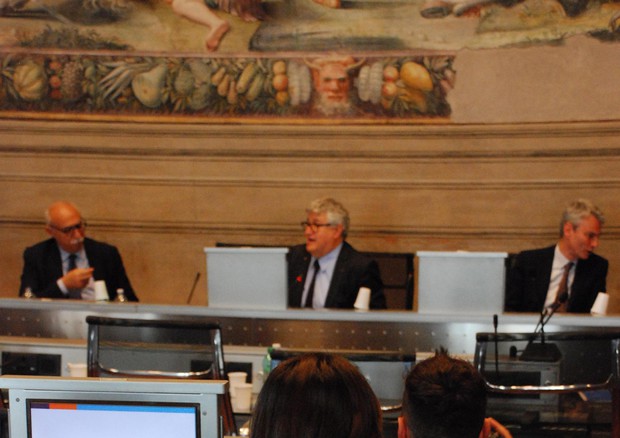(ANSA) - Udine, June 13 - The excessive number of university graduates with respect to labor market demand and the brain drain will be among key issues at the center of a gathering on "University and economic development" organized as part of the G7 University in Trieste on June 29-30.
The event is organized by the Italian national university rectors' conference (CRUI) in collaboration with the Friuli-Venezia Giulia regional government, Fondazione Friuli, the University of Udine and the education ministry.
Some 150 university rectors, professors and students from G7 countries will be participating in the initiative, which is part of the Italian 'Conoscenza in Festa' knowledge festival.
The third of four scheduled discussions will examine the theme, starting with the following question: "Analyzing policies to increase the population of graduates, how important are university tuition fees?".
The preparatory document drafted by coordinators Mattia Cattaneo, Michele Meoli and Stefano Paleari from the University of Bergamo stressed the need to delve into the evolving relationship between the "level of public investment and the number of citizens who have graduated.
"A new conceptual model can be useful to better understand the external conditions to be held into account when a government is planning a policy to increase the population of graduates", the researchers wrote in the document.
Working on the "abstract implementation of a model based solely on quantitative results obtained in a single country is an excessively simplistic solution if contingent factors are not adequately considered".
In order to stimulate further reflection at the G7 event, the researchers who worked on the draft document noted that, "while our conceptual model focuses on the quantity of graduates in the population, the passage from quantity to quality has instead become increasingly important for our economies based on knowledge.
"The future orientations of research" will be based on this scenario, the researchers concluded.
In collaboration with:
G7
